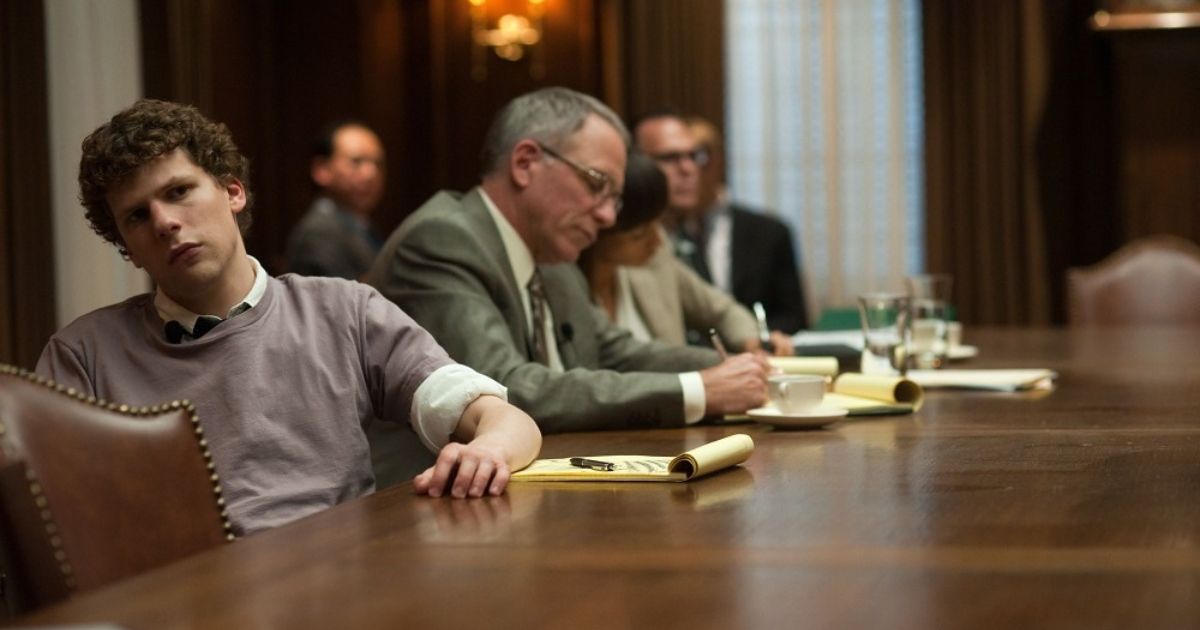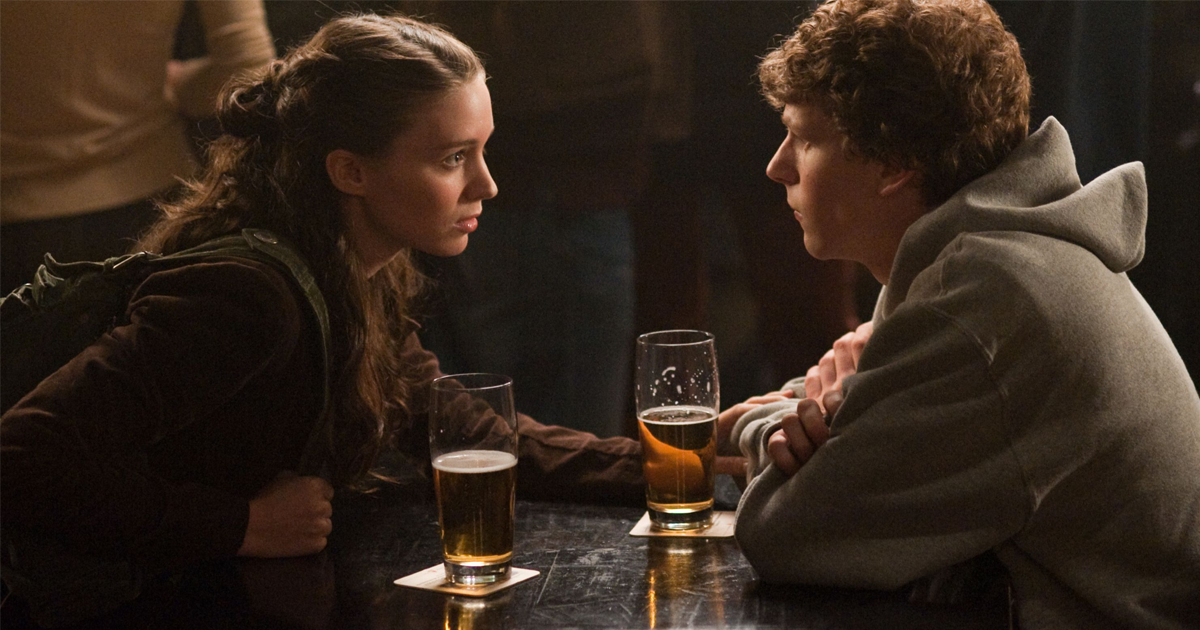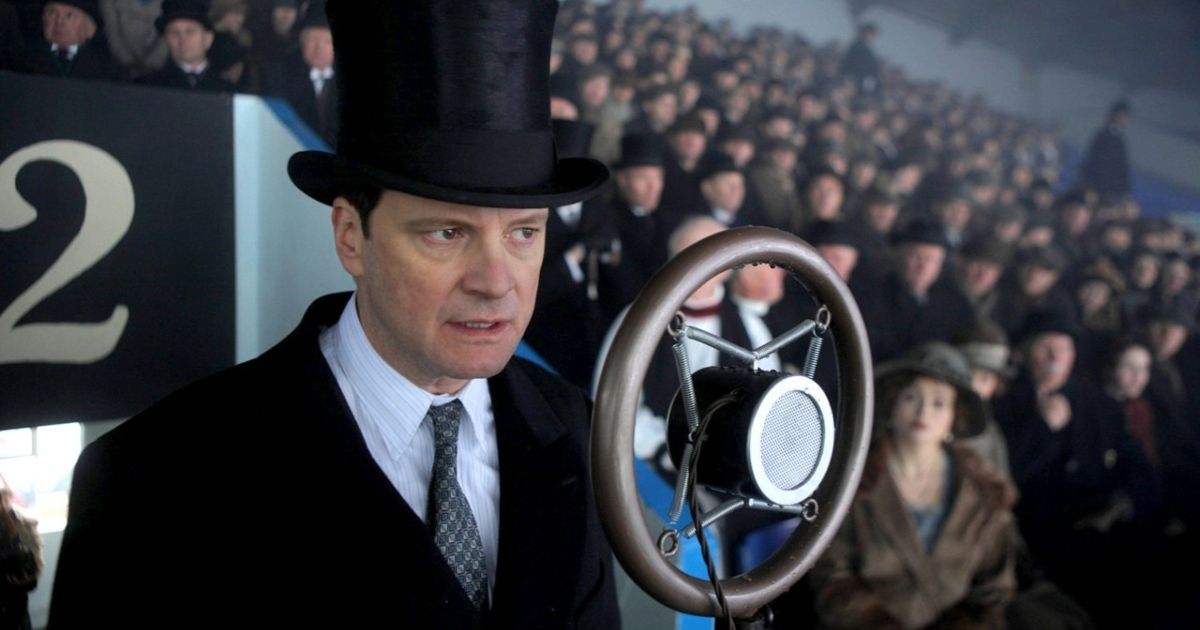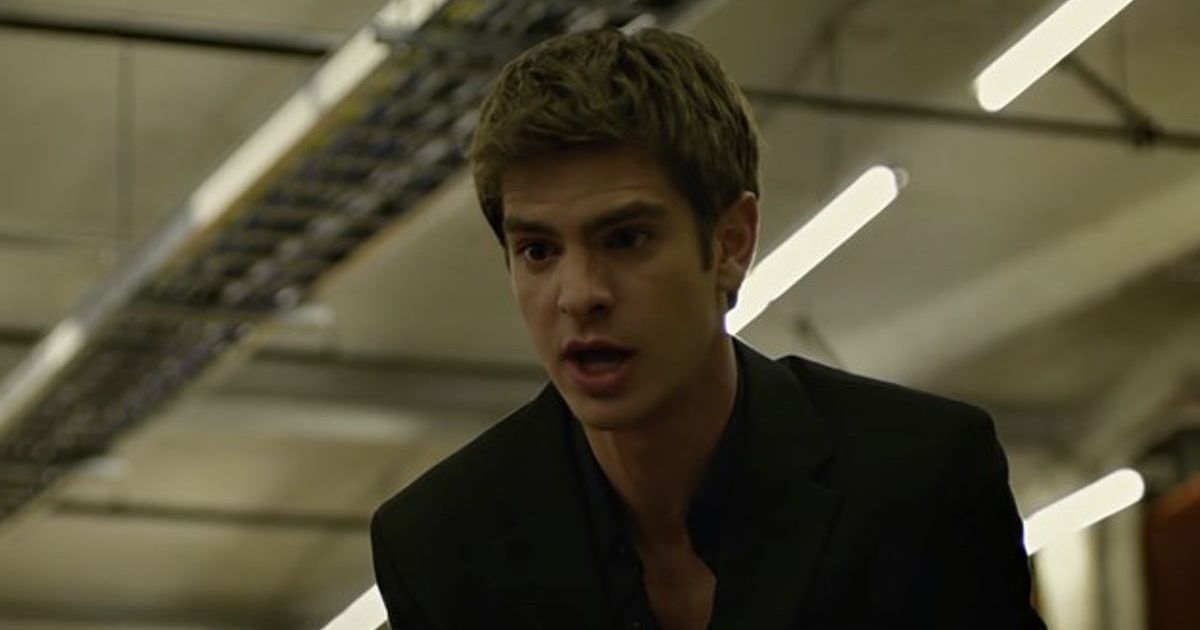The Social Network is a movie directed by David Fincher, written by Aaron Sorkin, and based on the book by Ben Mezrich. It charts the origins of the website Facebook in the days when Mark Zuckerberg and his co-founder Eduardo Saverin were at Harvard together. What starts as an evening of programming in a dorm room quickly snowballs into a business that made Zuckerberg the youngest billionaire in history. It’s a story of greed, betrayal, and envy, giving it a sense of Shakespearean tragedy that might not be expected from the origin story of Facebook of all things.
Jesse Eisenberg stars as Zuckerberg, with Andrew Garfield alongside as Saverin. There are also supporting performances from Justin Timberlake, Rooney Mara, and Armie Hammer, who round out the cast. As is expected from Fincher, it’s a movie that is made with extreme precision which is fitting for a movie depicting Zuckerberg as someone so laser-focused.
However, despite its many positive and successful elements — more to be discussed later — it was snubbed for the Best Picture Oscar. While it won the awards for best score, editing, and screenplay, it lost out on the big win to The King’s Speech — here’s why it should have won instead.
5 It Made Something Out of Nothing
If you had never seen or heard of The Social Network and were recommended a movie about how Facebook was made, it wouldn’t be surprising if you turned your nose up at the thought. Mark Zuckerberg is not the most compelling public figure, though he has become the butt of several jokes in the years since the movie was released in 2010. He also doesn’t have a tragic backstory that usually makes for the typical meat of a biopic. Instead, the filmmakers have created an engrossing story out of what is mostly unpleasant young men talking to each other.
The Social Network’s confidence and aforementioned precision lift what could’ve been a banal, by-the-numbers business story into something much more than the sum of its parts. Its focus on characterization and interpersonal dynamics means that the weight of each character’s actions packs a greater punch. Rather than being a movie about the rise of Facebook, it’s really about the demise of a friendship that results in disaster. Whether it’s an accurate depiction of Zuckerberg as a person or not, the character we are presented with is truly fascinating. He’s vindictive and cutthroat in a way that not many might have expected for an unassuming social media company owner.
4 Aaron Sorkin Was at His Best
One of the most important components of The Social Network is its screenplay by Aaron Sorkin. It plays a huge role in creating the movie’s atmosphere and making Zuckerberg into such a compelling character. Sorkin is famous for his rapid-paced walking and talking scripts. This doesn’t exactly fit the walking and talking part of the bill, but the way he is able to squeeze in technical jargon without weighing down the movie’s pace is essential.
Discussing what drew him to the movie he said, "The invention itself is as modern as it gets, but the story is as old as storytelling; the themes of friendship, loyalty, jealousy, class and power," (via TIFF). His style is far from naturalistic and here, that helps to develop the cold, ruthless world he preseents us with.
Sorkin deservedly won the best adapted screenplay Oscar that year, but the issue still remains that the movie was snubbed for best picture. While much of the time, Sorkin’s style works well, it can also feel forced and out of place. The fact that every aspect of the movie meshes so well together, from the Trent Reznor & Atticus Ross score to Fincher’s direction and Jeff Cronenweth’s cinematography, should be rewarded. It’s clear that Sorkin being chosen to write the screenplay was a well-thought-out decision that allowed him to work at his best rather than an effort to impress audiences and critics with witty dialogue.
3 Harvey Weinstein's Meddling
Aside from the obvious, and much more serious, issues with Harvey Weinstein’s run in the industry, he was also notorious for drumming up artificial controversy around movies he wanted to win big at the Oscars. In some people’s opinions, Oscar nominees are too niche to represent the true state of cinema and the preferences of audiences. However, the truth is that for movies to find big success at the Academy Awards, it’s important that they also do well at the box office. For example, Everything Everywhere All At Once would not have had its historic series of wins if it hadn’t also been a runaway hit in theaters.
With that in mind, one of Weinstein’s favorite tricks to boost ticket sales was to have a movie originally rated X, loudly complain about the ratings system, and then re-cut the movie to suit an R-rating. This strategy was used for Scandal, Blue Valentine, and The King’s Speech to name a few. This behavior is unnecessary and doesn’t allow these movies to speak for themselves, but it led to The King’s Speech getting more eyes on it than it likely would have otherwise. Of course, there are several factors at play, but if it weren’t for Weinstein’s meddling, the 2011 Oscars may have had a different outcome.
2 It Captured a Moment
Making movies about the internet is a tricky task. A good way of addressing current issues is by making them more abstract rather than trying to capture an exact period in time and culture, the ever-so-slightly futuristic Her is a great example of this. On the other hand, when filmmakers tackle the issue head-on, it can feel too blunt and immediately dated, this can be seen in Men, Women & Children.
This is what makes The Social Network unique. Its events take place from 2003 to 2004 and though there isn’t an exact date for when the screenplay was written, Sorkin started writing it before the source novel was finished. It was then released in 2009, so it’s likely that the screenplay began around 2008. This timeline means that there were only a few years of distance between the events of the movie and the inception of the movie itself.
Therefore, the fact that the filmmakers succeeded in capturing this moment with just a few years of hindsight is impressive. Rather than feeling dated, it’s so well observed that it feels more like a period piece set within the same decade. It captured the excitement and possibility surrounding the rapidly expanding internet without coming across as clichéd or obvious.
1 The Social Network Endured the Test of Time
Something that Oscar voters could not have known at the time is how strong the legacy of The Social Network is. For all the reasons listed above, the movie has really stood the test of time. Given the choice in 2011, voters might have argued The King’s Speech would be the more long-lasting story. As a true period piece, its position is firmly planted in history, which might have given it a greater sense of timelessness under other circumstances. But the reality is it has faded from cultural conversations while The Social Network maintains its standing.
Arguably, one of the reasons for this (other than the movie’s quality) is that Mark Zuckerberg and Facebook remain at the forefront of conversations around the internet. Be it presidential elections in the United States or the advancing world of virtual reality, so many roads lead back to Facebook. Each time there’s a new development in Zuckerberg’s bizarre business trajectory, it adds a new perspective or angle on The Social Network. Of course, much of the movie is fictionalized, but that doesn’t change the fact that it feels like getting a real insight into Zuckerberg’s origins. We wouldn’t know all of this without the hindsight we now possess, but the lasting impact of The Social Network over The King’s Speech rubs salt in the wound of the Best Picture snub.




.jpg)
Comments
Post a Comment